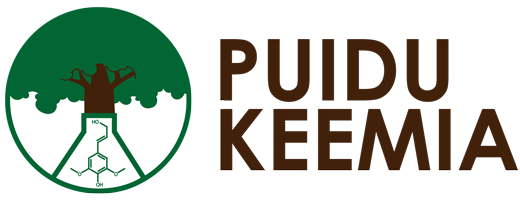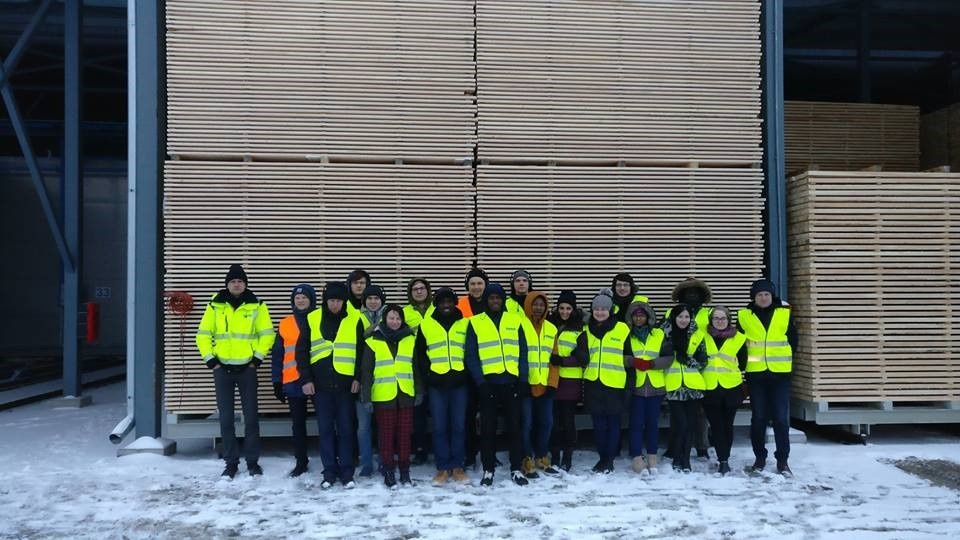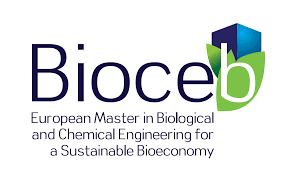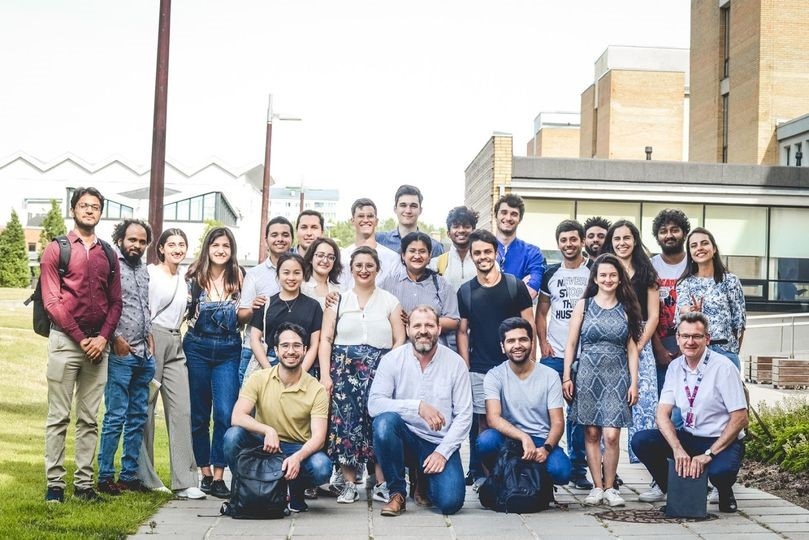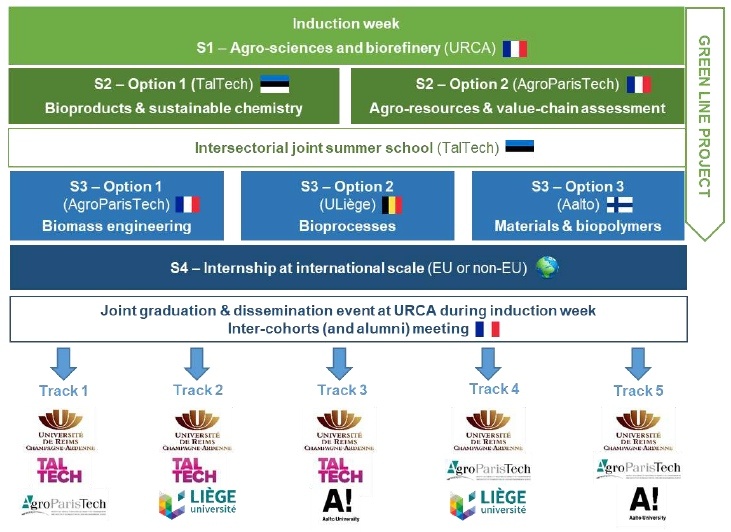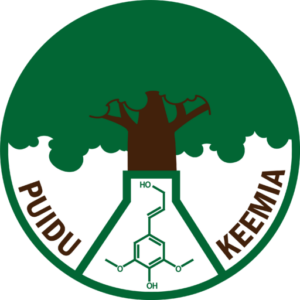It is possible to specialize at the Master's level of the Technology of Wood, Plastics and Textiles curriculum to wood technology or to plastic and textile technology. Both directions have a strong industrial and technological background because 35% The sub-branches of the wood and furniture, rubber and plastic, and textile and clothing industries make up the sales volume of the Estonian manufacturing industry. Due to the increase in export volumes, companies are investing in expanding production, developing technology and increasing efficiency, which in turn has led to a high demand for specialists with specialized knowledge.
Master's program in Wood, Plastic and Textile Technology
A total of 30 students were accepted to the BIOCEB master's program in 2020, who were divided between 5 different study tracks before the start of their studies (see Figure 1). After the 1st semester at Reims-Champagne-Ardenne University in the fall of 2020, there are still 25 students, of which 17 students came to study at TalTech and about 8 students went to study at AgroParisTech University.
In the spring of 2021, TalTech will teach a total of 5 courses in the curriculum with multiple master's degrees. Within the framework of the BIOCEB project, 4 student receptions are planned, 10-15 students are planned to be taught in the 2nd spring semester 2020-2024.
- LKK0180 - Refining systems for the production of bioproducts (6 ECTS)
- LKK0130 – Metrics of green chemistry for the production of bioproducts (6 ECTS)
- LKK0190 - Life cycle analysis of green technology (6 ECTS)
- KAK8220 - Sustainable/Cleaner Production (6 ECTS)
- KMP0340 - Biopolymers: basic nature, production and use (6 ECTS)
In Estonia, the annual summer school of the BIOCEB master's program (5 receptions) is held for all students. In the summer school held from June 28 to July 2 in the summer of 2021, exciting lectures were held on bioeconomy, algae cultivation, new biotechnologies and bioinnovation start-ups. The companies Estonian Cell As, Combiwood AS, the research laboratories of the University of Tartu and the Estonian University of Life Sciences and the Rakvere Castle were visited.
According to the chosen direction, you will get in-depth knowledge about the construction, properties and technologies of wood or plastic or textile and clothing industry materials. You will acquire basic knowledge of technology entrepreneurship, project planning, analysis and management, which you can supplement with optional subjects. Product development and innovative production are related to material testing methods, industry-specific (wood or textile) We are not limited to only theoretical knowledge - in teaching there is a great emphasis on practical laboratory work, solving tasks and implementing projects. E-learning enables flexible acquisition of knowledge in all courses. It is also worth noting that the school has contributed to the development of the curriculum five professional associations: Estonian Forest and Wood Industry Association, Estonian Furniture Manufacturers Association, Estonian Wood House Association, Estonian Plastic Industry Association and Estonian Clothing and Textile Association. In addition, various reports have been taken into account, which reflect the needs of future jobs and required professional competences outlined by companies.
Notice! Teaching takes place in English. It is an international study program in which studying is free for citizens of Estonia and other European Union countries.
- In addition to the 2nd major, the curriculum has a new minor "Bioproducts, sustainable chemistry and technology", which consists of 5 subjects taught in the BIOCEB curriculum and 3 subjects added to them.
- The aim is to offer a minor to students who are already studying, and who, in addition to their major, want to study novel lignocellulosic biomass chemical and biological technologies as a minor.
- In the development of the adjacent field, cooperation is being carried out with Aalto University, which already has a very high level of research and development of wood chemistry and biorefining technologies, as well as teaching in this field.
BIOCEB European Master in Biological and Chemical Engineering for a Sustainable Bioeconomy
For TalTech, participation in the multi-diploma master's program project of 5 universities is very important. The main goal is to develop R&D cooperation between 5 universities and to create new competence in TalTech in the fields of biorefining technologies of lignocellulosic biomaterials and developing bioproducts and their life cycle analysis.
Students can study the accredited Master's program "Wood, Plastic and Textile Technology" of TalTEch Faculty of Engineering from 2021 Students admitted to the Erasmus Mundus study program BIOCEB "European Master in Biological and Chemical Engineering for a Sustainable Bioeconomy" (2020-2024). Graduates receive a master's degree from three universities at the same time, according to the chosen study path.
In February 2019, a consortium consisting of 5 universities (Aalto University, Liege University, AgroPariTech, Reims-Champagne-Ardenne University, TalTech) submitted an application to the Erasmus Mundus Joint Master Degree 2019 project competition BIOCEB "European Master in Biological and Chemical Engineering for a Sustainable Bioeconomy" (BIOCEB ), which received a positive funding decision in July 2019, and a total of 4 admissions are planned.
The BIOCEB master's curriculum is not a joint curriculum, but is based on accredited curricula at partner universities. From the subjects taught in the curriculum of each university, a 30 ECTS module has been prepared for one semester, so in order to complete the curriculum, the student must complete 3 study semesters (3 x 30=90 ECTS) in three different universities and defend the master's degree in accordance with the requirements of the universities' joint defense committee and defense procedure, and finally receive the master's degrees of all 3 universities according to the study path (see Figure 1). The idea of the BIOCEB master's program is a master's program based on student mobility and increasing international research and teaching experience. The curriculum has 5 different study tracks (Study tracks), TalTech participates in study tracks 1-3.
